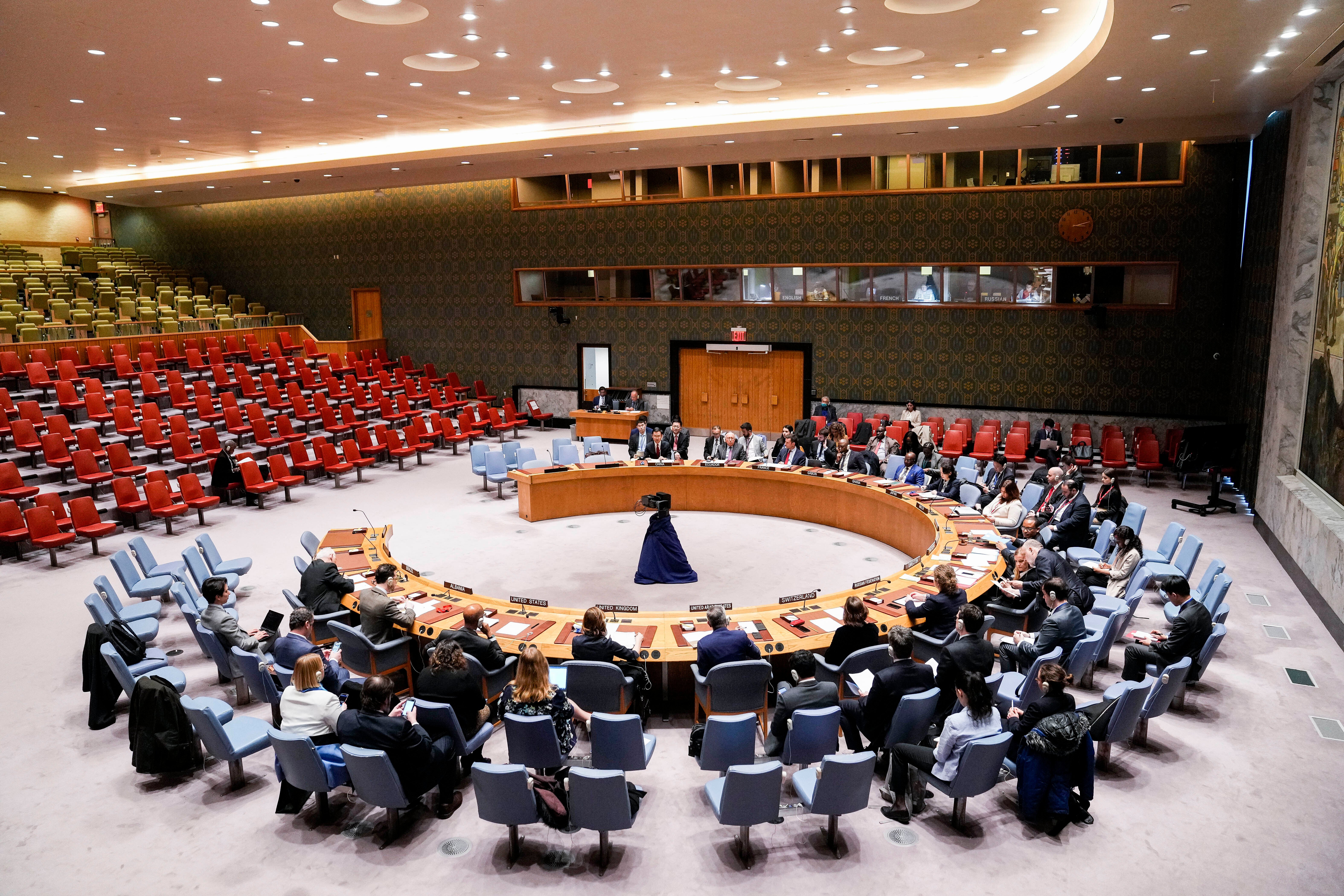UN Security Council to hold first open meeting on North Korea human rights situation since 2017
The U.N. Security Council will hold its first open meeting on North Korea’s dire human rights situation since 2017 next week

Your support helps us to tell the story
From reproductive rights to climate change to Big Tech, The Independent is on the ground when the story is developing. Whether it's investigating the financials of Elon Musk's pro-Trump PAC or producing our latest documentary, 'The A Word', which shines a light on the American women fighting for reproductive rights, we know how important it is to parse out the facts from the messaging.
At such a critical moment in US history, we need reporters on the ground. Your donation allows us to keep sending journalists to speak to both sides of the story.
The Independent is trusted by Americans across the entire political spectrum. And unlike many other quality news outlets, we choose not to lock Americans out of our reporting and analysis with paywalls. We believe quality journalism should be available to everyone, paid for by those who can afford it.
Your support makes all the difference.The U.N. Security Council will hold its first open meeting on North Korea’s dire human rights situation since 2017 next week, the United States announced Thursday.
U.S. Ambassador Linda Thomas-Greenfield told reporters that U.N. human rights chief Volker Türk and Elizabeth Salmon, the U.N. independent investigator on human rights in the reclusive northeast Asia country, will brief council members at the Aug. 17 meeting.
“We know the government’s human rights abuses and violations facilitate the advancement of its unlawful weapons of mass destruction and ballistic missiles program,” Thomas-Greenfield said, adding that the Security Council “must address the horrors, the abuses and crimes being perpetrated” by North Korean leader Kim Jong Il’s regime against its own people as well as the people of Japan and South Korea.
Thomas-Greenfield, who is chairing the council during this month’s U.S. presidency, stood with the ambassadors from Albania, Japan and South Korea when making the announcement.
Russia and China, which have close ties to North Korea, have blocked any Security Council action since vetoing a U.S.-sponsored resolution in May 2022 that would have imposed new sanctions over a spate of its intercontinental ballistic missile launches. So the council is not expected to take any action at next week's meeting.
China and Russia could protest holding the open meeting, which requires support from at least nine of the 15 council members. A senior U.S. official from the U.N. mission, who was not authorized to speak publicly, indicated the U.S. has enough council support for the meeting to take place.
The Security Council imposed sanctions after North Korea’s first nuclear test explosion in 2006 and tightened them over the years in a total of 10 resolutions seeking — so far unsuccessfully — to cut funds and curb the country's nuclear and ballistic missile programs.
At a council meeting last month on Pyongyang’s test-flight of its developmental Hwasong-18 missile, North Korea's U.N. Ambassador Kim Song made his first appearance before members since 2017.
He told the council the test flight was a legitimate exercise of the North’s right to self-defense. He also accused the United States of driving the situation in northeast Asia “to the brink of nuclear war,” pointing to its nuclear threats and its deployment of a nuclear-powered submarine to South Korea for the first time in 14 years.
Whether ambassador Kim attends next week’s meeting on the country’s human rights remains to be seen.
In March, during an informal Security Council meeting on human rights in North Korea — which China blocked from being broadcast globally on the internet — U.N. special rapporteur Salmon said peace and denuclearization can’t be addressed without considering the country’s human rights situation.
She said the limited information available shows the suffering of the North Korean people has increased and their already limited liberties have declined.
Access to food, medicine and health care remains a priority concern, Salmon said. “People have frozen to death during the cold spells in January,” and some didn’t have money to heat their homes while others were forced to live on the streets because they sold their homes as a last resort.
Subscribe to Independent Premium to bookmark this article
Want to bookmark your favourite articles and stories to read or reference later? Start your Independent Premium subscription today.